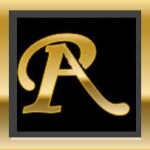 Plot Noodling Post — Be warned! Any cool ideas you post in these comments may be used in a future novel or story, and I will not even try to keep track of who deserves credit. Don’t post any ideas you aren’t willing to give away.
Plot Noodling Post — Be warned! Any cool ideas you post in these comments may be used in a future novel or story, and I will not even try to keep track of who deserves credit. Don’t post any ideas you aren’t willing to give away.
Caveat over, I was wondering about the humanities at a university of magic. My own background being in science, I’ve patterned much of the Royal Academy after that. It’s easy for me to see how engineering + magic =wizardry, or medicine + magic = sorcery. I wouldn’t have any trouble writing about what wizards or sorcerers did.
But history+magic? English+magic? Arts+magic? These don’t come so easily.
So far, the series contains two faculty in Arcane Arts. One is a painter, and has created stained glass windows with protective wards in them. The other is an iconomancer, or diviner, and identifies which of the divine powers resides in a particular artifact. But two arts faculty do not a University make!
Help me shore up my weak spot. What should humanities scholars in a University of Magic be working on?

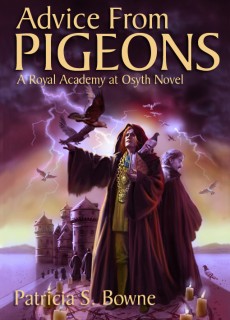
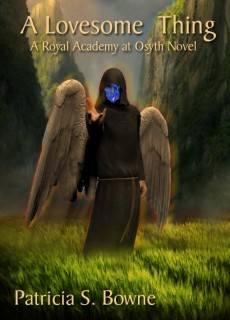
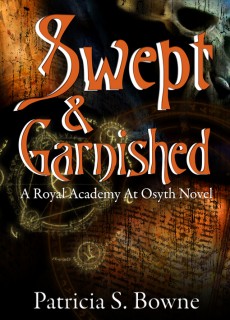
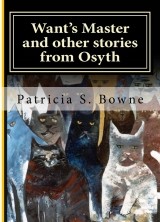
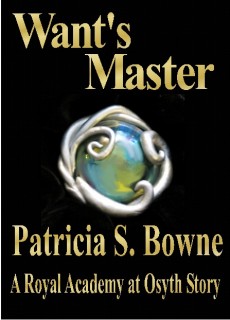
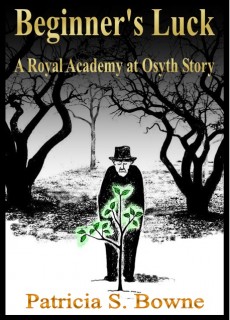
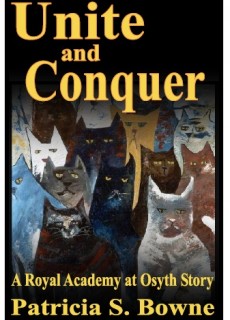
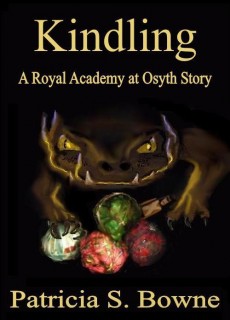
Well, there would certainly be philosophers in there somewhere. Don’t the dark arts raise all kinds of questions about mind-body relationships, the nature of life and death, and the ethics of black and white magic? And wouldn’t the feminist philosophers be critiquing the positive reputation that wizards and vampires have (male, of course) while witches (female) get roasted in front of cheering crowds?
Seems to me that History of Magic would be a subfield of particular interest. And I’ve got to imagine that both visual and performing arts would be transformed in remarkable ways by use of magic. (I wonder whether there would be “purists” who insist on only magical, or only nonmagical, art–I suspect it would depend on when magic was codified in this world. Has it always existed or can people recall a time when it wasn’t?)
Do the students at the RA have a faster pace for magical invention, such that the faculty labor to keep up? Do the faculty have to sit through orientations on “who our students are”? (“Today’s underclassman at RA cannot recall a time when grimoires were stored on parchment, and expects automatically to have access to the bound version. The students automatically expect to be supplied with necessary ritual herbs, and will refuse to gather by moonlight….”
English scholars would be very powerful, because they would control language. They could make words forbidden, with dire consequences for those that use them.
I think part of what’s confusing me is that I don’t really understand where philosophy stops and social science begins. The question about witches, for instance, I would have handed over to psychology or even political science. The others raise lots of interesting ideas, though! Especially given the existence in my world of vampires (life but no soul) and ghosts (soul but no life).
Thanks!
What a cool idea! I haven’t tried to write about students yet, because I was afraid I couldn’t possibly keep up with how fast they change. But of course what I need to do is get ahead, according to the rules of my world.
I do have something in a story I’m working on about a fad among students for having their protective wards tattooed on, instead of wearing them. The head of Demonology is refusing to let anyone who has a pentacle tattoo work with demons, for safety reasons. I wonder what else students might pick up as fads!
How would they do that — or am I asking you to reveal trade secrets? Would it be based on consensus, like the changes alchemists make, and would you English scholars have an equivalent of the Mystic Guild of Alchemists to organize this consensus? If so, would it be an open or secret group?
This is reminding me of Ellsworth Toohey’s group in ‘The Fountainhead’…
In my view the difference (in this world) has to do with the nature of the questions and the way evidence is presented. Social science requires tractable questions that are open to empirical observation; bigger questions about the nature of reality are things we foist off on philosophy. So while psychology can talk about factors that make people more or less likely to help in an emergency, a question such as “are people fundamentally good or evil” makes us run away.
Psychology also relies on data rather than logical argumentation as evidence. So while feminist scholars may lay out the larger themes and arguments about gender portrayals, psychology looks for behavioral patterns, so I guess in this case they would look to see what factors increased prejudice/stereotyping about witches.
I am perhaps thinking about this too hard. 🙂
Forbidden words: Think of Orwell’s “1984”… where, for example, the word ‘war’ was forbidden; instead of a ministry of war, there was a ministry of love, abbreviated “MiniLuv”, that did all that dirty work. If euphemisms seem to obvious of a construct, how about some sort of ‘street slang’?
Hi David! Great to hear from you… but this sounds more and more sinister. Obviously the english faculty are going to mount a serious bid to redefine reality through syntax, and the alchemists are not going to stand for this…
As a musician, what would you be doing at the Royal Academy?
Of course it’s sinister. I’m left-handed. :-Þ
Hmmm… off the top o’ my head, I could work with the English faculty on popularizing all that evil syntax through hit songs… and I could also work with the alchemists and physicists and magicians on enabling strange occurrences through the use of resonant frequencies and the like. So I guess I’d be the “dirty double crosser”… but then again, I might just be there to create the soundtrack to the inevitable movie so I could live off the royalties. Both sound intriguing, actually 🙂
One thought I have as a teacher of English. Language is instinctual — we are all born being able to talk, and our brain processes speech in specific ways.
However, writing is a technology and is not instinctual, and the brain handles writing in sort of an ad hoc manner. I teach English as a foreign language, and this distinction matters for learning a language. In fact, I know people who can read English perfectly and can hardly speak a word. Writing and speaking seem identical, but in practice they are not as closely related as I wish, because then my job would be easier.
This may be a limitation on what language magic can do. We have the technological means to work around the spoken word.